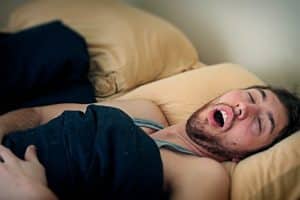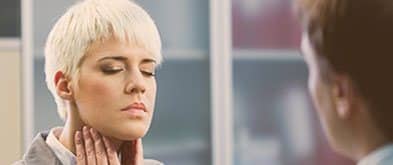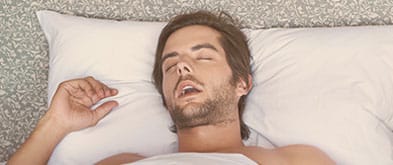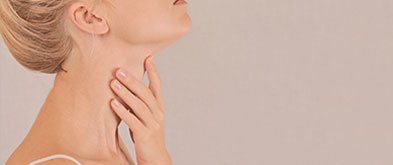Non-Invasive Treatment for Sleep Apnea
What is sleep apnea?
Sleep apnea is a disorder characterized by pauses in breathing, known as apneas, that take place while the patient sleeps. These pauses are long and frequent enough to disrupt oxygen supply to the body and can have serious health consequences over time.
What are the types of sleep apnea?
There are three types of sleep apnea:
Obstructive
Obstructive sleep apnea is by far the most common kind. In this variant, the patient is unable to breathe due to a physical obstruction somewhere in the airway. Most commonly, this happens due to soft tissue somewhere in the throat blocking airflow as it relaxes during sleep. In some cases, the position of the jaw during sleep can be the major factor.
Central
Central sleep apnea is a relatively rare variant in which breathing is interrupted due to failure of the nerve signals that regulate respiration during sleep. Central sleep apnea is more likely in those who have suffered neurological trauma or have another neurological condition.
Hybrid or Mixed
In hybrid sleep apnea, apneas are attributable to physical obstruction and neurological reasons.
What are the surgical options for sleep apnea?
Obstructive sleep apnea can often be eliminated through direct surgery on the soft tissue causing the obstruction. The tissue is excised, enabling the patient to breathe normally during sleep. This option will not affect central sleep apnea and does not completely eliminate hybrid sleep apnea.
What are the non-invasive treatment options for sleep apnea?
The most common non-invasive options for obstructive sleep apnea are continuous positive airway pressure or the use of a custom dental appliance worn while sleeping.
What is a positive airway pressure device?
A continuous positive airway pressure device (or CPAP) is used to keep the airway open during sleep by continuously applying light pressure to the soft tissue with a continuous flow of air. This prevents the tissue from collapsing and enables normal breathing.
What are the different types of oral appliances?
The most common type of oral appliance for sleep apnea is a molded plastic device designed to conform to the shape of your teeth. It is used to gently move the jaw forward while you sleep. For some patients, this significantly improves the breadth of the airway during sleep.
What are the advantages of oral appliance therapy for sleep apnea?
Oral appliance therapy for sleep apnea is simple, effective, and inexpensive. In some cases, it can allow patients to completely control sleep apnea symptoms. Oral appliances rarely need to be replaced or adjusted and have few to no side effects when customized to the patient.
What are the side effects of oral appliances?
Side effects are mild and are not experienced by all patients. Side effects that may occur include excess saliva, dryness in the mouth, sore throat, temporary jaw discomfort, and bite changes. These can usually be expected to subside over time.
What are the home remedies for sleep apnea?
There are no home remedies for sleep apnea that address its root cause. However, many people with sleep apnea benefit from over the counter antihistamine medication or other options, like aromatherapy, that can improve airflow and reduce mucous production at night.
When to see a dentist for sleep apnea treatment?
If you suspect you have sleep apnea, start by seeing an expert ENT who can provide diagnosis and treatment options. At Lakeside Allergy ENT, we can perform an overnight sleep study to diagnose your condition and help you with oral appliance therapy or other treatments.
For more, contact Lakeside Allergy ENT.







